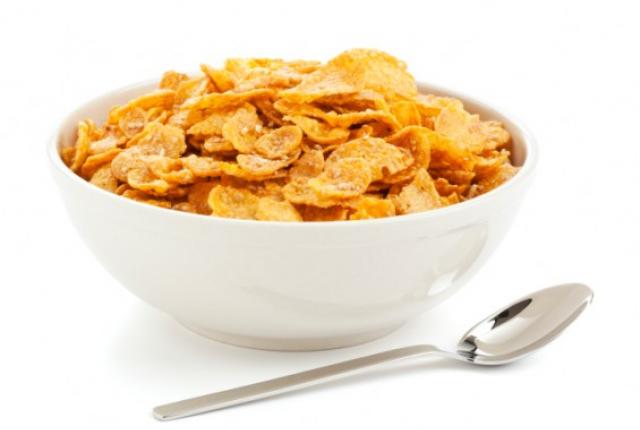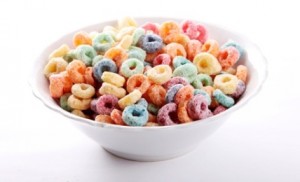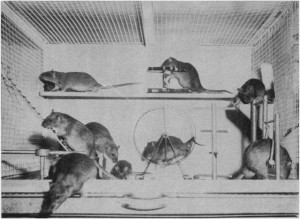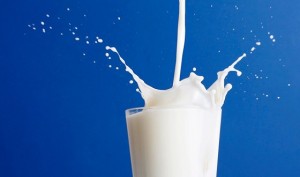By Sally Fallon
This presentation was given at the annual conference of Consumer Health of Canada, March, 2002. Mankind has always processed his food; food processing is an activity that is uniquely human. One type of food processing is cooking.
Traditional food processing had two functions: to make food more digestible and to preserve food during times of scarcity. This type of processing resulted in traditional foods like sausage and the old-fashioned meat puddings and haggis. It includes sourdough bread, fermented grain products, cheese and other fermented milk products, pickles, sauerkraut, and beverages–everything from wine and spirits to lacto-fermented soft drinks.
In the past, processing was carried out by farmers and artisans such as bread makers, cheese makers, distillers, millers and so forth. This type of processing resulted in delicious foods and kept the profits on the farm and in the farming communities where it belonged–food processing should be a local cottage industry.
Most importantly, traditional processing enhances or increases the nutrient value of our foods. Traditional bread making neutralizes anti-nutrients in grains to make the minerals more available; lacto-fermentation of cabbage to make sauerkraut increases the levels of vitamin C and many B vitamins many fold; and the making of yoghurt, kefir and similar products from fresh milk makes the nutrients in the milk more available and more digestible.
Industrial Processing
Unfortunately, in modern times we have abandoned local artisanal processing in favor of factory and industrial processing, which actually destroys the nutrients in food rather than increasing them, and makes our food more difficult to digest rather than more digestible. Furthermore, industrial processing depends upon products that have a negative impact on our health, such as sugar, white flour, processed and hydrogenated oils, additives, synthetic vitamins and an extrusion processing of grains. These are the tools of the food processing industry.
Ready for breakfast? Let’s have a look at the typical American breakfast of cereal, skim milk and orange juice.
 Packaged Cereals
Packaged Cereals
Dry breakfast cereals are produced by a process called extrusion. Cereal makers first create a slurry of the grains and then put them in a machine called an extruder. The grains are forced out of a little hole at high temperature and pressure. Depending on the shape of the hole, the grains are made into little o’s, flakes, animal shapes, or shreds (as in Shredded Wheat or Triscuits), or they are puffed (as in puffed rice). A blade slices off each little flake or shape, which is then carried past a nozzle and sprayed with a coating of oil and sugar to seal off the cereal from the ravages of milk and to give it crunch. In his book Fighting the Food Giants, Paul Stitt has tells us that the extrusion process used for these cereals destroys most of the nutrients in the grains. It destroys the fatty acids; it even destroys the chemical vitamins that are added at the end. The amino acids are rendered very toxic by this process. The amino acid lysine, a crucial nutrient, is especially denatured by extrusion. This is how all the boxed cereals are made, even the ones sold in the health food stores. They are all made in the same way and mostly in the same factories. All dry cereals that come in boxes are extruded cereals. The only advances made in the extrusion process are those that will cut cost regardless of how these will alter the nutrient content of the product. Cereals are a multi-billion dollar business, one that has created huge fortunes.
With so many people eating breakfast cereals, you might expect to find some studies on the effect of extruded cereals on animals or humans. Yet, there are no published studies at all in the scientific literature.
 The Rat Experiments
The Rat Experiments
Let me tell you about two studies which were not published. The first was described by Paul Stitt who wrote about an experiment conducted by a cereal company in which four sets of rats were given special diets. One group received plain whole wheat, water and synthetic vitamins and minerals. A second group received puffed wheat (an extruded cereal), water and the same nutrient solution. A third set was given only water. A fourth set was given nothing but water and chemical nutrients. The rats that received the whole wheat lived over a year on this diet. The rats that got nothing but water and vitamins lived about two months. The animals on water alone lived about a month. But the company’s own laboratory study showed that the rats given the vitamins, water and all the puffed wheat they wanted died within two weeks—they died before the rats that got no food at all. It wasn’t a matter of the rats dying of malnutrition. Autopsy revealed dysfunction of the pancreas, liver and kidneys and degeneration of the nerves of the spine, all signs of insulin shock.
Results like these suggested that there was something actually very toxic in the puffed wheat itself! Proteins are very similar to certain toxins in molecular structure, and the pressure of the puffing process may produce chemical changes, which turn a nutritious grain into a poisonous substance.
Another unpublished experiment was carried out in the 1960s. Researchers at Ann Arbor University were given 18 laboratory rats. They were divided into three groups: one group received corn flakes and water; a second group was given the cardboard box that the corn flakes came in and water; the control group received rat chow and water. The rats in the control group remained in good health throughout the experiment. The rats eating the box became lethargic and eventually died of malnutrition. But the rats receiving the corn flakes and water died before the rats that were eating the box! (The last corn flake rat died the day the first box rat died.) But before death, the corn flake rats developed schizophrenic behavior, threw fits, bit each other and finally went into convulsions. The startling conclusion of this study is that there was more nourishment in the box than there was in the corn flakes.
This experiment was actually designed as a joke, but the results were far from funny. The results were never published and similar studies have not been conducted.
Most of America eats this kind of cereal. In fact, the USDA is gloating over the fact that children today get the vast majority of their important nutrients from the nutrients added to these boxed cereals.
Cereals sold in the health food stores are made by the same method. It may come as a shock to you, but these whole grain extruded cereals are probably more dangerous than those sold in the supermarket, because they are higher in protein and it is the proteins in these cereals that are so denatured by this type of processing.
There are no published studies on the effects of these extruded grains on animals or humans, but I did find one study in a literature search that described the microscopic effects of extrusion on the proteins. “Zeins,” which comprise the majority of proteins in corn, are located in spherical organelles called protein bodies. During extrusion, these protein bodies are completely disrupted and deformed. The extrusion process breaks down the organelles, disperses the proteins and the proteins become toxic. When they are disrupted in this way, you have absolute chaos in your food, and it can result in a disruption of the nervous system.
Old-Fashioned Porridge
So what are you going to have for breakfast? We need to go back to the old fashioned porridges, as I explain in Nourishing Traditions. These porridges should be soaked overnight in an acid medium to get rid of the anti-nutrients. Soaking will neutralize the tannins, complex proteins, enzyme inhibitors and phytic acid. You soak the grains in warm water with one tablespoon of something acidic like whey, yoghurt, lemon juice or vinegar. The next morning, the porridge cooks in about a minute. Of course, you eat your porridge with butter or cream like our grandparents did. The nutrients in the fats are needed to absorb the nutrients in the grains. That was one of the great lessons of Weston Price, that without the vitamins present in animal fats (vitamins A and D), you cannot assimilate minerals and other vitamins. You can be taking mineral supplements, drinking green juices or eating organic food until it comes out your ears, but you cannot absorb the minerals in your food without vitamins A and D that are exclusively found in the animal fats.
 Milk
Milk
The minute you start to process your milk, you destroy Mother Nature’s perfect food. You can live exclusively on raw milk, especially milk from nature’s sacred animal, the cow. We have no sense of the sacredness of our animals today. Instead, we have an industrial system of agriculture that puts our dairy cows inside on cement all their lives and gives them foods that cows are not designed to eat�grain, soy, citrus peel cake and bakery waste. These modern cows produce huge amounts of watery milk which is very low in fat.
Milk from these industrial cows is then shipped to a milk factory. Emily Green wrote an excellent article in the LA Times, August 2000 about milk processing. Milk processing plants are big, big factories where visitors are not allowed. Lots can go wrong in these factories. The largest milk poisoning in American history occurred in 1985 where more than 5,000 people across three states were sickened after a “pasteurization failure” at an Illinois bottling plant.
Inside the plants all you can see is stainless steel. Inside that machinery, milk shipped from the farm is completely remade. First it is separated in centrifuges into fat, protein and various other solids and liquids. Once segregated, these are reconstituted to set levels for whole, low-fat and no-fat milks; in other words, the milk is reconstituted to be completely uniform. Of the reconstituted milks, whole milk will most closely approximate original cow’s milk. The butterfat left over will go into butter, cream, cheese, toppings and ice cream. The dairy industry loves to sell low fat milk and skim milk because they can make a lot more money from the butterfat when consumers buy it as ice cream. When they remove the fat to make reduced fat milks, they replace the fat with powdered milk concentrate, which is formed by high temperature spray drying. All reduced-fat milks have dried skim milk added to give them body, although this ingredient is not usually on the labels. The result is a very high-protein, lowfat product. Because the body uses up many nutrients to assimilate protein�especially the nutrients contained in animal fat�such doctored milk can quickly lead to nutrient deficiencies.
The milk is then pasteurized at 161 degrees F by rushing it past superheated stainless steel plates. If the temperature is 200 degrees the milk is called ultrapasteurized. This will have a distinct cooked milk taste but it is sterile and can be sold on the grocery shelf. In other words, they don’t even have to keep it cool. The bugs won’t touch it. It does not require refrigeration. As it is cooked, the milk is also homogenized by a pressure treatment that breaks down the fat globules so the milk won’t separate. Once processed, the milk will last for weeks, not just days.
Milk Allergies
Many people, particularly our children, cannot tolerate the stuff that we are calling milk that is sold in the grocery shelves. And you can see why. It starts with cows in confinement, cows fed feed that cows are not designed to digest, and then it goes into these factories for dismantlement and reconfiguration.
The protein compounds in milk have many important roles, including protection against pathogens, enhancement of the immune system and carrier systems for nutrients. However, like the proteins in grains, the proteins in milk are complex, three-dimensional molecules that are very fragile. The pasteurization process deforms and denatures these proteins. When we drink pasteurized milk, the body mounts an immune response instead of deriving instant nourishment.
Numerous animal studies in the 1930s and 1940s showed the superiority of raw milk over pasteurized in building strong bone, healthy organs and a strong nervous system.
Fortunately what we call real milk, that is full-fat milk from pasture-fed cows, milk that is not pasteurized, processed or homogenized, is becoming more available. Parents are discovering just how healthy and happy their children can be when they drink raw milk instead of pasteurized. (See realmilk.com for sources.)
Powdered Milk
A note on the production of skim milk powder: liquid milk is forced through a tiny hole at high pressure, and then blown out into the air. This causes a lot of nitrates to form and the cholesterol in the milk is oxidized. Those of you who are familiar with my work know that cholesterol is your best friend; you don’t have to worry about natural cholesterol in your food; however, you do not want to eat oxidized cholesterol. Oxidized cholesterol contributes to the buildup of plaque in the arteries, to atherosclerosis. So when you drink reduced-fat milk thinking that it will help you avoid heart disease, you are actually consuming oxidized cholesterol, which initiates the process of heart disease.
 Orange Juice
Orange Juice
Now let’s turn to the orange juice in this supposedly healthy breakfast. It is quite shocking what turns up in a literature search on orange juice processing.
A quote from Processed and Prepared Foods states that “a new orange juice processing plant is completely automated and can process up to 1,800 tons of oranges per day to produce frozen concentrate, single strength juice, oil extracted from the peel, and cattle feed.”
In the processing, the whole orange is put into the machine. Enzymes are added to get as much oil as possible out of the skin. Oranges are a very heavily sprayed crop. These sprays are cholinesterase inhibitors, which are real neurotoxins. When they put the oranges in the vats and squeeze them, all those pesticides go into the juice.
What about the orange peel used for cattle feed? The dried left-over citrus peel is processed into cakes which are still loaded with cholinesterase inhibitors and organophosphates. Mark Purdey in England has shown these neurotoxins are correlated with “Mad Cow Disease” (Bovine Spongiform Encephalitis or BSE). The use of organophosphates either as a spray on the cows or in their feed is one of the causes of the degeneration of the brain and nervous system in the cow and if these components are doing this to the nervous system of the cow, there’s a possibility they are doing this to you also. In fact, a study carried out in Hawaii found that consumption of fruit and fruit juices was the number one dietary factor for the development of Alzheimer’s disease. The researchers speculated that the real culprit was the pesticides used in fruit�and concentrated in the juices due to modern processing techniques.
The FDA has decreed that we can no longer buy raw juice, because it might be a source of pathogens. But it might surprise you to know that they have found fungus that is resistant to pressure and heat in the processed juices. One study found that 17% of Nigerian packages of orange juice and 20% of mango and tomato juices contained heat resistant fungi. They also found E. coli in the orange juice that was pressure resistant and had survived pasteurization. So there is plenty of danger from contamination from pasteurized juices. In one study, heat-treated and acid-hydrolyzed orange juice was tested for mutagenic activity. The authors hypothesized that the heating process produces intermediate products, which under test conditions, give rise to mutagenicity, and cytotoxicity. In other words you have got cancer-causing compounds in your orange juice. In another study, gel filtration and high performance liquid chromatography were used to obtain mutagenic fractions from heated orange juice.
Another study shows just how toxic and damaging these juices are to teeth. They found that rats had more tooth decay from these commercial juices than they did from soda pop, which is loaded with sugar.
One more thing about processed orange juice. Have you ever wondered why processed orange juice stays cloudy, why the solids do not settle? This is because soy protein combined with soluble pectin is added, and this keeps the juice permanently cloudy. It might be interesting to know, for those of you who are allergic to soy.
Artificial Flavors vs. Nutritious Homemade Broths and Sauces Based on Natural Nourishing Broths
In the past, all traditional cultures made use of bones to make broth. They recognized the fact that broth was very nutritious. Science tells us that bone broths supply minerals and other nutrients, including gelatin, which aids digestion, in addition to imparting wonderful flavors to our food.
Before the advent of processed food, we made bone broth�beef broth, chicken broth and fish broth�and we used these broths to make delicious soups, sauces and gravies. When we made sauce or gravy at home, we used the good drippings from the meat, added some flour, and then added homemade broth.
Processed soup bases and sauces contain artificial meat-like flavors because it is too expensive for the industry to make real broth. Instead, they take short cuts, which means that consumers are shortchanged. When the homemade stocks were pushed out by the cheap substitutes, an important source of minerals disappeared from the American diet. The thickening effects of gelatin could be mimicked with emulsifiers, but of course, the health benefits were lost. And gelatin is a very healthy thing to have in your diet. It helps you digest your food properly and has been shown to be useful in many digestive disorders. According to a South American proverb, “Good broth resurrects the dead.”
 Artificial Flavorings, Hydrolyzed Protein, and MSG
Artificial Flavorings, Hydrolyzed Protein, and MSG
Research on gelatin and natural broths came to an end in the 1950s when food companies discovered how to induce Maillard reactions and produce meat-like flavors in the laboratory. In a General Foods Company report issued in 1947, chemists predicted that almost all natural flavors would soon be chemically synthesized. Following the Second World War food companies discovered monosodium glutamate (MSG), a food ingredient the Japanese had invented in 1908 to enhance food flavors, including meat-like flavors. Humans actually have receptors on the tongue for glutamate�it is the protein in food that the human body recognizes as meat. Unfortunately, the free glutamic acid in MSG has a very different effect in the body than the natural glutamic acid in food, one that is harmful, especially to the nervous system. Any protein can be hydrolyzed to produce a base containing MSG, but the usual source is soy. When the industry learned how to make the flavor of meat in the laboratory using inexpensive proteins from grains and legumes, the door was opened to a flood of new products including bullion cubes, dehydrated soup mixes, sauce mixes, TV dinners, and condiments with a meat-flavored base.
The fast food industry could not exist without MSG and other artificial meat flavors to make secret sauces and spice mixes that beguile the consumer into eating bland and tasteless food. The sauces in processed foods are basically MSG, water, thickeners and emulsifiers and some caramel coloring. Your tongue is tricked into thinking that it is getting something nutritious when it is getting nothing at all except some very toxic substances. Even the dressings, the Worcestershire sauce, rice mixes, dehydrated soups, all of these and anything that has a meat-like taste has MSG in it. Almost all canned soups and stews contain MSG, and the “hydrolyzed protein” bases often contain MSG in very large amounts
So-called “homemade soup” in most restaurants is usually made by adding water to a powdered soup-base or soup cubes and then adding chopped vegetables, etc. Even things like lobster bisque and sauces in the seafood restaurants are full of these artificial flavors. It’s all profit based. The industry even finds it too costly to just use a little onion and garlic for flavoring, so they are using the artificial flavors instead.
Most of the vegetarian foods are loaded with these flavorings. The list of ingredients in vegetarian hamburgers, hot dogs, bacon, baloney, etc. may include hydrolyzed protein and other “natural” flavorings. Soy foods contain large amounts of MSG as it is formed during processing. MSG is also formed during the spray drying of milk, so it is in reduced-fat milk because spray dried milk is added to these products.
MSG Labelling
As I point out in my various workshops, the three most toxic additives in our food supply are MSG, hydrolyzed protein, and aspartame, and the first two are in all of these secret sauces with “natural flavors.” Anything that you buy that says “spices” or “natural flavors” contains MSG! The industry avoids putting MSG on the label by putting MSG in spice mixes, and if the mix is less than 50% MSG, manufacturers don’t have to put it on the label. You may have noticed that that phrase “No MSG” has actually disappeared. That’s because MSG is in all the spice mixes. Even Bragg’s “Liquid Aminos” had to take “No MSG” off their label.
Health Problems with MSG
The industry has known about the health problems caused by MSG for a long time. In 1957 scientists found that mice became blind and obese when MSG was administered by feeding tube. In 1969, MSG-induced lesions were found in the hypothalamus region of the brain. Subsequent studies all pointed in the same direction. MSG is a neurotoxic substance that causes a wide range of reactions, from temporary headaches to permanent brain damage. We have a huge increase in Alzheimer’s, brain cancer, seizures, multiple sclerosis, and diseases of the nervous system, and one of the chief reasons is these flavorings in our food. MSG is also associated with violent behavior.
Most surprisingly, MSG causes obesity! In laboratory experiments on obese rats, scientists induce obesity by feeding the animals MSG!
Ninety-five percent of processed foods contain MSG, and as you may know, in the late 1950s it was added to baby food. After some congressional hearings on this subject, the industry told us they had taken it out of the baby food, but they didn’t really remove it. They just called it by another name–hydrolyzed protein. I recommend that everyone read the book Excitotoxins, by Dr. Russell Blaylock. He describes how the nerve cells either disintegrate or shrivel up in the presence of free glutamic acid, that is, MSG, if it gets past the blood-brain barrier. The glutamates in MSG are absorbed directly from the mouth to the brain. Some investigators believe that the great increase in violence in this country is due, not to sugar, but to the huge increase in the use of MSG in the food which began in the late 1950’s, and particularly because it was put in baby food in very large amounts.
A Quintessential Imitation Food
To give an example of how the food industry thinks, consider this description of artificial bacon, taken from a food processing magazine: “Here is an engineered meat product which looks, cooks, and tastes like bacon, but is formed and laminated by a co-extrusion process. It is made from a mixture of pork, beef, sugar, salt, MSG, and smoked flavor and has a number of advantages. It shrinks very little in cooking; holds its shape and color well; contains twice the protein and half the fat of bacon; costs less than bacon and the processed product does not delaminate.” Isn’t that nice to know? Of course, now they have figured out how to do this without any meat at all by using soy. The real question is, not whether this fake product will delaminate, but whether in fact it will support life.
Fats and Oils
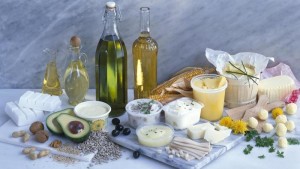 The last fifty years have seen a huge increase in the consumption of processed vegetable oils, and a concurrent decline in the consumption of animal fats. These oils look clean and bright on the grocers shelves, but a description of vegetable oil processing reveals the true nature of these products.
The last fifty years have seen a huge increase in the consumption of processed vegetable oils, and a concurrent decline in the consumption of animal fats. These oils look clean and bright on the grocers shelves, but a description of vegetable oil processing reveals the true nature of these products.
Oil processing begins with the extraction of crude vegetable oils from the seeds, a process that requires high temperatures and pressures, and often involves a hexane solvent. By the way, these oils start out loaded with pesticides. The steps involved in processing include caustic refining, bleaching, deodorizing, filtering, and removing saturates to make the oils more liquid. Most of these steps involve heat and produce toxic breakdown products known as free radicals. Free radicals cause cancer. When we cook with these oils, more free radicals are formed. These vegetable oils which look clean and have no smell are actually completely denatured and carcinogenic.
Margarine
Manufacturers cannot use liquid oils in baked goods or frying, and they are not spreadable. So to harden the liquid vegetable oils to make margarine and shortening, they put the oils through a process called partial hydrogenation. To make margarine or shortening, first the oil is extracted under high temperature and pressure, and the remaining fraction of oil is removed with hexane solvents. Then the oils are steam cleaned, a process that removes all the vitamins and anti-oxidants, but of course, the solvents and the pesticides remain. These oils are then mixed with a nickel catalyst and put into a huge high-pressure, high-temperature reactor. What goes into the reactor is a liquid, but what comes out of that reactor is a semi-solid that looks like grey cottage cheese and smells terrible. Emulsifiers are mixed in to smooth out the lumps. The product is then steam cleaned a second time to get rid of the horrible smell. Then it is bleached to get rid of the grey color. At this point, the product can be used as vegetable shortening.
To make margarine, they add artificial flavors and synthetic vitamins. You may be comforted to know that manufacturers are not allowed to add a synthetic color to margarine. So they add annatto or some other natural coloring. It is then packaged in blocks and tubs. Advertising promotes this garbage as a health food.
Trans Fats in Hydrogenated Oils
Trans fatty acids are the type of fat molecules produced by the process called “partial hydrogenation,” which rearranges the hydrogen atoms in an unsaturated fatty acid to produce a fat that is solid at room temperature. Natural saturated fatty acids are straight molecules that pack together easily so they tend to be solid at room temperature. In a saturated fatty acid, each carbon atom is joined to two hydrogen atoms. The hydrogen atoms are arranged in pairs, thus creating electron clouds. Our cell membranes are composed of billions of fatty acids; chemical reactions occur in the cell membranes at sites where two hydrogen molecules form electron clouds.
Natural unsaturated fatty acids, such as oleic acid, tend to be liquid at room temperature. They have two or more hydrogen atoms missing where the carbons are double bonded together, but the remaining hydrogen atoms at the double bond are paired on the same side�called the cis configuration�forming an electron cloud where reactions can take place in the cell membrane.
During the process of partial hydrogenation, one of the hydrogen atoms in a pair is moved to the other side of the molecule, forming a trans fatty acid, such as elaidic acid�trans means “across.” This causes the molecules to straighten out so that they pack together easily and form a solid fat at room temperature. Unfortunately, when these trans fatty acids are incorporated into the cell membrane, they are missing the hydrogen pairs needed for chemical reactions to occur. The result is dysfunction and chaos on the cellular level.
All of the margarines, shortenings, spreads, even low-trans spreads contain trans fats plus many other artificial ingredients. In the groceries stores there is just a little bit of space for the butter because all the high-profit margarine foods have totally invaded the food supply. Virtually all packaged or processed foods contain trans fatty acids. They’re in all the chips and crackers, and they now use them for French fries. The industry used to fry the fries in beef tallow, which is a very safe fat, and gave a little extra profit for the cattlemen, but they have lost that market now. Today French fries are fried in partially hydrogenated soybean oil. It used to be that when you made desserts for your kids, at least they contained butter, eggs, cream and nuts and other healthy ingredients–all good wholesome foods. Now the industry can imitate the butter, eggs and cream, so most desserts end up being mostly sugar, partially hydrogenated oils and a long list of artificial ingredients.
Problems with Hydrogenated Oils
Many, many diseases have been associated with the consumption of trans fatty acids, such as heart disease, cancer, digestive disorders and degeneration of joints and tendons (which is why we have so many hip replacements today). Trans fats are associated with auto-immune disease, skin problems, growth problems in children and learning disabilities. The only reason that we are eating this stuff is because we have been told that the competing fats and oils–butter, lard, tallow and suet, coconut oil and palm oil–are bad for us and cause heart disease. This message is nothing but industry propaganda to get us to buy substitutes.
Processed Food Affects Fertility and Facial Structure
Weston A. Price discovered that as children eat these processed foods, with each generation, the facial structure becomes more and more narrow. Healthy faces should be broad. They should have perfectly straight teeth and no cavities. When you are eating real foods, nutrient-dense foods, you get the complete and perfect expression of the genetic potential. And that genetic potential, that gift from the Creator to all of us, is perfection. We were given a perfect blueprint. Whether or not the body temple is built according to the blueprint depends on our wisdom in food choices. When primitive societies abandoned their traditional diet and began to eat processed foods, the next generation had narrowed facial structure and was much more susceptible to diseases of every sort.
We know from animal studies that if you continue a deficient diet for three generations, reproduction ceases and that’s what we’re seeing now. About 25% of our couples are infertile, and if we don’t go back to a diet that produces good facial structure and good health, the human race will simply die out.
Factory Food Preparation–Is Your Food Made by Caring Hands?
Artificial flavors and preservatives are made by chemical companies in factories; they are not being made by the loving hands of a cook. All the artificial ingredients added to the food help the rich get richer and the general public get sicker. The industry has completely processed the life out of the food and then as a concession to the public, thrown in a handful of artificial nutrients. Can you imagine what kind of feeling, what kind of radiation comes from that factory food?
Spiritual Food Preparation–Made with Love
I’d like to end with a wonderful quote about cooking from an esoteric source: “If a woman could see the sparks of light going forth from her fingertips when she is cooking, and the substance of light that goes into the food she handles, she would be amazed to see how much of herself she charges into the meals that she prepares for her family and friends. It is one of the most important and least understood activities of life, that the radiation and feeling that go into the preparation of food affect everyone who partakes of it. And this activity should be unhurried, peaceful, and happy because the substance of the lifestream performing the service flows into that food and is eaten, and actually becomes part of the energy of the receiver. It would be better that an individual did not eat at all than to eat food that has been prepared under a feeling of anger, apathy, resentment, depression, or any outward pressure.” (Maha Chohan, Electrons) Think of the vibration that in all this food that is made in factories. Nourishing foods starts with the way we farm—the farmer who farms with wisdom and love for the land, the dairyman who farms with love for his animals, the cheese maker who makes cheese with the love of her craft, the baker who bakes with the love of the final product, the beverage maker who makes the type of delicious and nutritious beverage that should be produced in every town and hamlet. Traditional processing puts not only good nutrition, but the vibration of love into our food.
To continue with our quote. “The energy goes into the food and when it is eaten by the receiver actually blesses the receiver. That is why the advanced spiritual teachers of the East never eat food prepared by anyone other than their own chelas (disciples). The person preparing the food may be the only one in the household who is spiritually advanced (this is often the case). An active charge of happiness, purity, and peace will pour forth into the food from him, and this pours forth into the other members of the family and blesses them. There are more ways than one of allowing the Spirit of God to enter the flesh of man.”
So I hope that from what I have shown you, you will turn away from godless food. Someone from the family needs to get back in the kitchen. It doesn’t mean you have to spend hours in the kitchen, but you need to spend some time in the kitchen preparing food with love, food that has been grown with love and prepared with wisdom and love. If no one in the family has time to go into the kitchen and prepare food, you need to sit down and rethink how you are spending your time because there is simply no other way to get nourishing foods into our children.
The situation is really very critical. If we don’t return to good eating practices one mouth at a time, one meal at a time, one farm at a time, preparing our own food and preparing it properly, there is not going to be another generation.
About the Author Sally Fallon is the author of Nourishing Traditions: The Cookbook that Challenges Politically Correct Nutrition and the Diet Dictocrats, and Eat Fat, Lose Fat (both with Mary G. Enig, PhD), as well as of numerous articles on the subject of diet and health. She is President of the Weston A. Price Foundation and founder of A Campaign for Real Milk. She is the mother of four healthy children raised on whole foods including butter, cream, eggs and meat.

